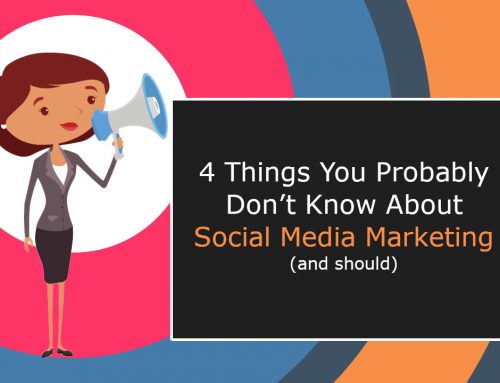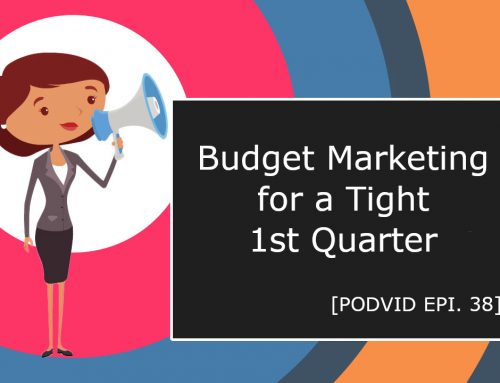The art of the social media post is not one mastered by everyone, it takes art and skill to weave words meant to capture the attention of the reader, and to convey your point in an engaging and meaningful way. This is a special post for the start of 2019, with some of our biggest past posts, and some solid tips on writing a great post in 2019.
The Past
2018 changed the landscape of social media in ways that are still changing, and often hurt the advertiser, making us change how we deliver our content to people and ensuring we meet strict privacy standards. While this is great for the clients, it’s certainly made it more difficult to write a post for them that will perform the way we hope it will and make the advertising money worth it. This rift formed from tight privacy standards and the inability to ‘get to know’ a customer prior to contact has left many uncertain of the future of social media posting for their business.
The Basics
A few things haven’t changed with the changing of years. People still prefer easily shareable content like short videos, GIFs, still images with or without writing (aka memes), and sometimes – blog posts which are trendy. The basics aren’t complete without a warning for 2019 however. If you have clients or prospects in the EU, then you’ll want to make sure you’re not in violation of Article 13, not so lovingly called the ‘meme ban’. You’ll also need to ensure you don’t violate Article 11, the ‘link tax’ which has the right but doesn’t always mean you’ll be charged for, any links you provide within an article as source material from a news site. On top of all of these controls, is also the giant GDPR at the top. The GDPR is another set of privacy regulations ensuring that clients have control to opt out and that marketers must be transparent and get permission to have access to any amount of client data.
We’ve written blog posts in the past dedicated to all of these which you can access here:
Articles 11 & 13
GDPR
Quality Always
Whatever you decide to post, make sure it’s not a half-hearted effort because it will show. Deliver quality posts and images to your audience, and make solid efforts to show them you care. The content of what you’re posting matters as much as your brand because it is the voice of your company. It’s harder to deliver the quality you know your audience will love with all the controls in place meant to stop spammers from being obnoxious. The same laws which get rid of the vermin also affect small businesses and even medium-sized businesses in ways larger ones don’t really feel. It’s about knowing or guessing at some things your prospective clients may have in common. For instance, if you’re selling lumber, you’re probably selling mostly to men. If you’re selling makeup, your largest client group is likely female. While there are outliers in each group, the majority can be guessed at with certainty. Every type of business has a target group of people with something in common if not many things. We wrote a post about how you can zero in on your target audience, and provide the things they’ll love here.
Get Engaged!
The entire point of what you’re writing or posting is to engage your audience, and make them want to share it or comment, like it or even love it, to reshare it or re-tweet it. This means people are actively responding to your post instead of ignoring it or leaving you uncertain. This is the gold mine that businesses aim for in their social media business pages; solid engagement by their fans. Engagement can become brand loyalty and certainly can mean sales. This and gaining trust are the two things most hallowed in marketing any business on social media. It’s difficult to gain trust without engagement, so the two work hand-in-hand. You’ll want to post instantly shareable content that is easy to tell what it is in the tiny image used when shared on social media. We covered some of that instant content earlier within the basics, but we’ve also written a great post about it. [read here]
Definite Don’ts
Any post you make on social media is the voice and image of your company. While there are many edgy companies out there who are willing to post and air content that is about polarizing topics – they tend to be the corporate giants, who can take a little risk without pain – most of the time. There are a few things that smaller companies should avoid at all costs in their posts. If humor is a way you want to connect with your audience, be careful because a sense of humor is not universally shared and different cultures or languages have very different understandings of things than we ourselves might have when seeing the same thing. This touches on one of the biggest – cultural sensitivity. You have no idea who is really behind the screen reading your content but you don’t want to risk running them off before they’ve even had a chance to get to know your business. Cultural sensitivity is very important in a world full of so many different, and wonderful people. Broaching topics like religion or politics are also generally frowned upon, as are any hot topics up for debate like abortion or the death penalty. Unless your entire business centers on these topics as a news site, steer clear. We wrote more about it here.
When All Else Fails
Sometimes there’s nothing you can do about it, especially since the rise of the internet culture also gave birth to ‘internet trolls’ – you get some bad feedback on your social media page. What to do about is another thing many have different approaches for. Wendy’s likes to ‘burn’ their detractors on social media, as do other companies famous for their ‘clapbacks’. People love to go to the comments section to watch the drama unfold as the social media page of a corporate giant becomes hilarious until the original poster gives up. This is not a great practice for smaller companies to get into, however, because it can run off your potential clients and when you’re smaller, you can’t afford to lose even one.
There is a buffer for the big companies, who are banking on the fact that the people who get angry and get into a posting war with them, are worth less overall than all the people drawn by the social media war. They can afford to be wrong sometimes. So what do you do as a small business when someone posts something that casts you in poor light? First off, leave it there. Don’t delete their comments, but be sure to reply to them publicly asking them to send you a private message so you can sort out whatever’s gone wrong. If you want more tips? You can find them here.






![Do you know BERT? [Google SEO]](https://magiwebsa.com/wp-content/uploads/2019/11/podvid-epi35-cover-500x383.jpg)